With Valentine’s Day fast approaching we wanted to look at declarations of love in our collections, in particular love letters and poems. There are some lovely pieces celebrating love, and the angst that goes along with it!
—
Firstly, from the Dorset County Museum King Collection archive is this very fragile 19th century example of an intricately folded love poem, with numbered verses, decorated inside with pink and yellow hearts. It is unsigned, author unknown, and not clear to whom it was intended.
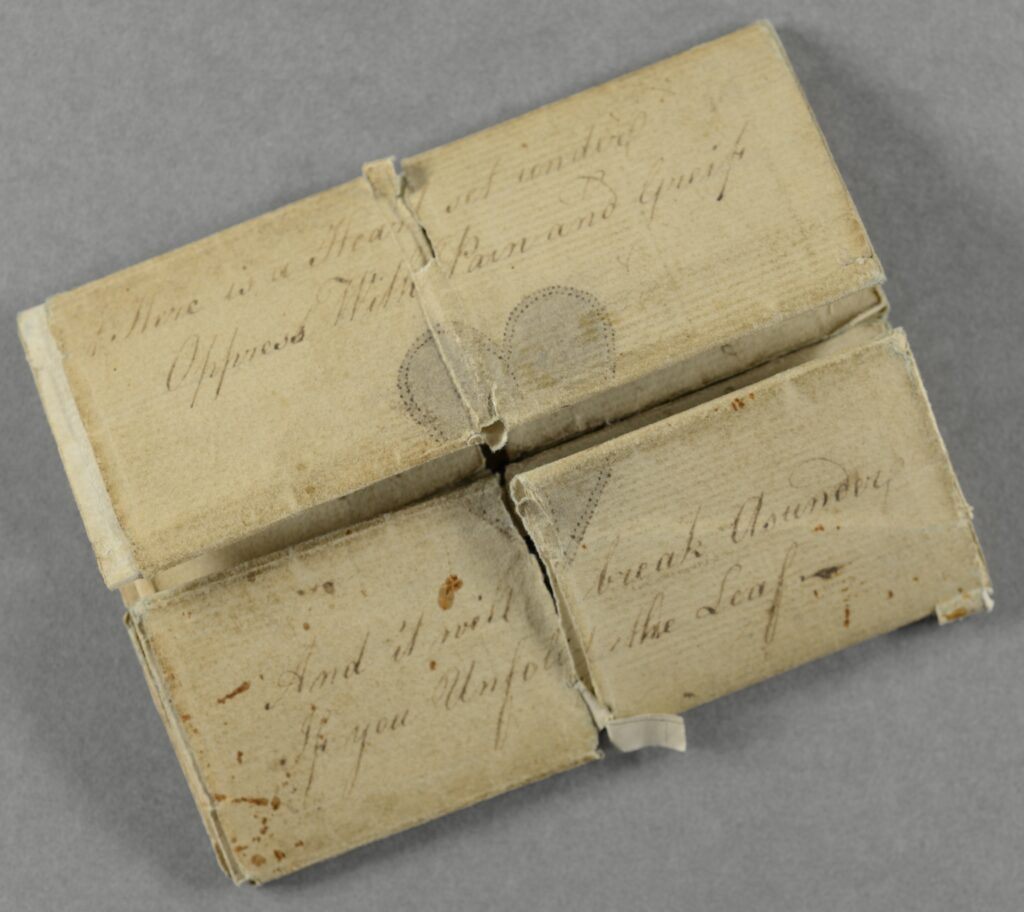
Its outward appearance is that of a box to be opened with the stark warning of loves wounding nature and fragility;
Here is a heart that is set under
Oppress with pain and grief
And it will break asunder
If you unfold the leaf
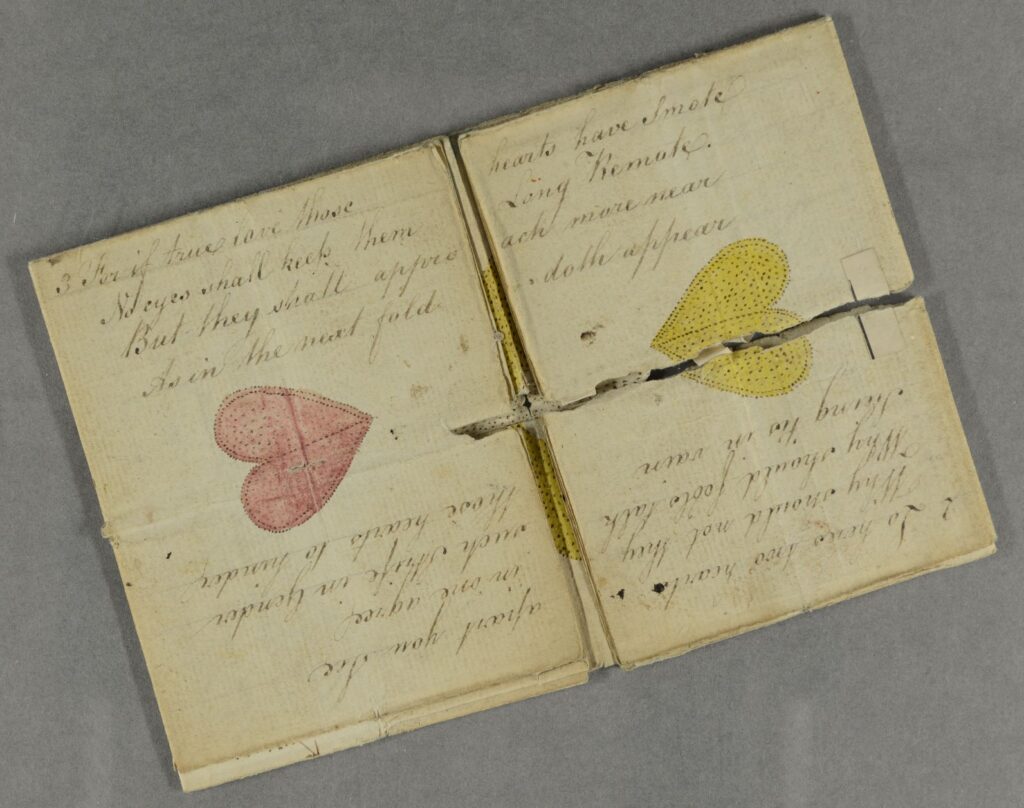
Once inside, the reader must unfold and rotate to continue reading the numbered verses
So here’s two hearts apart you see
Why should not in one agree
Why should fools talk such strife in gender
Seeing tis vain those hearts to hinder
For if true love hearts have smote
No eyes shall keep them long remote
But they shall approach more near
As in the next fold doth appear
There appears to be 21 verses in total. Fully unfolded it resembles a flat piece of origami, it’s unravelling echoing the complex twisting and turning journey of love.
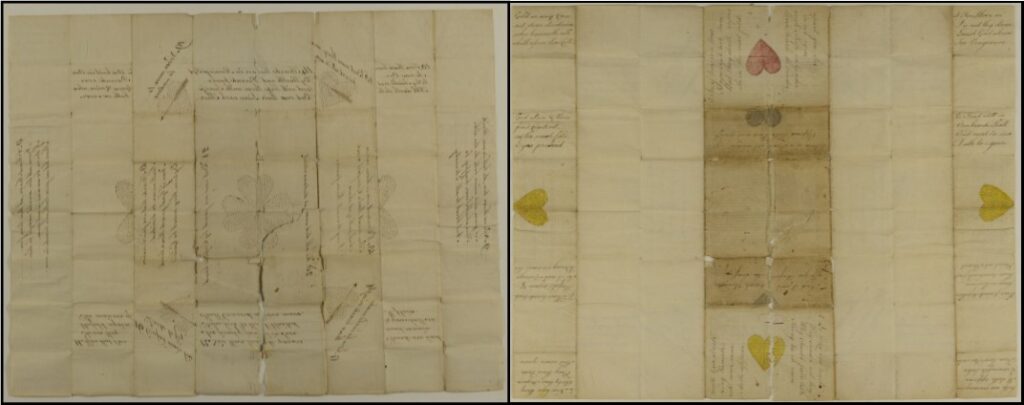
—
From the Bankes archive is the poem, The Spider that drops from the Blossom:
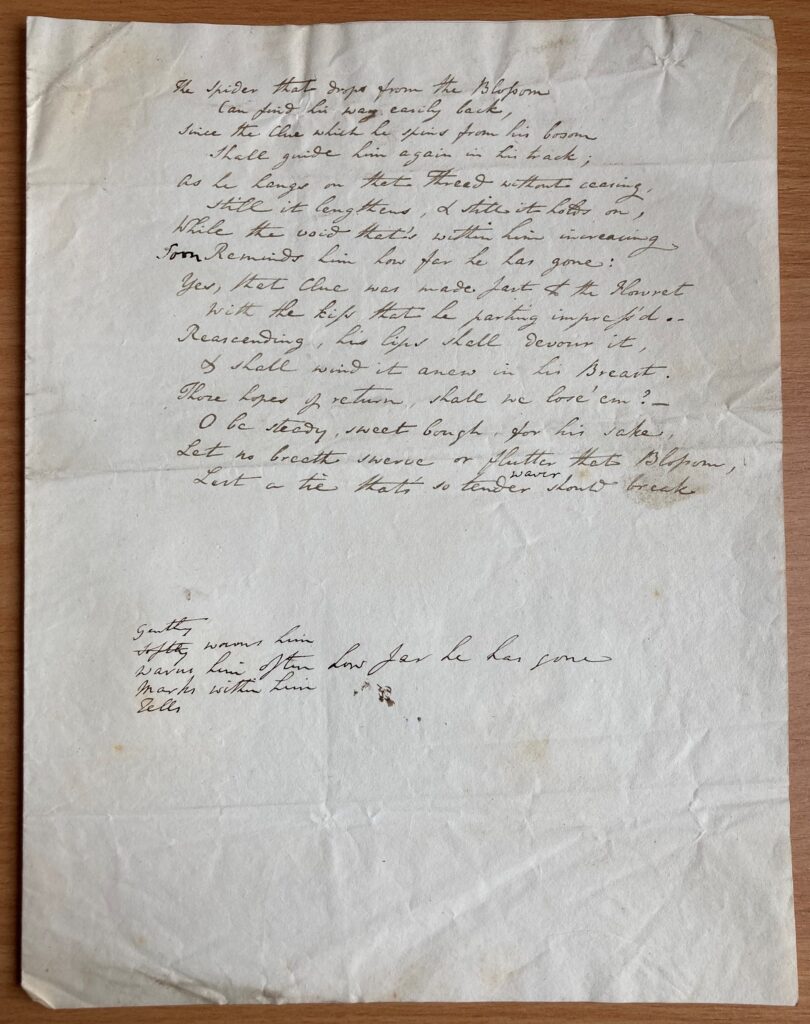
The spider that drops from the blossom
Can find his way easily back
Since the Clue he spins from his bosom;
Shall guide him again in his track
As he hangs on that thread without ceasing
Still it lengthens, and still he holds on,
While the void that is within him is increasing,
Soon reminds him how far he has gone:
Yes that clue was made fast to the Floweret
With the kiss he parting impressed.-
Reascending , his lips shall devour it,
And shall wind it anew in his breast.
Those hopes of return, shall we lose ’em? –
Oh be steady sweet bough, for his sake.
Let no breath swerve or flutter that blossom
Lest a tie, that so tender waver should break
It is thought the piece was written by William John Bankes, and though there are four copies in the archive with variations and corrections, it is not dated. William John Bankes is thought to be the most artistic and creative member of the Bankes family, having an avid appreciation for art, poetry and theatre, he studied at Trinity College Cambridge alongside fellow contemporary the poet, Lord Byron, and lifelong friend. This poem is part of an autograph album compiled, we think, by Daphne Bankes in the 1910s/1920s – one of four scrapbooks of letters from various dignitaries, famous people and politicians.
—
The love letter and poem These Wounded Hearts from The Miller family archive of Plush in Dorset is beautifully illustrated by hand with water colours, the letter to Mary appearing almost like a watermark through the illustration.
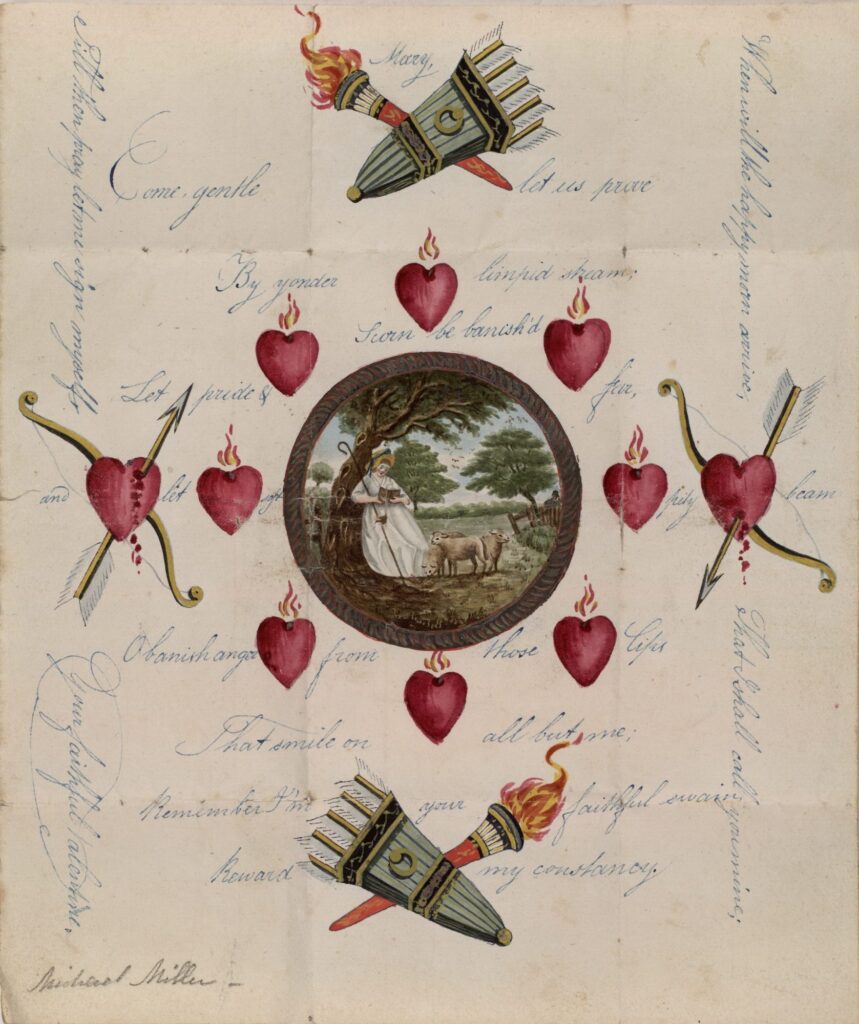
Mary
Come Gentle let us prove
By Yonder limpid stream
Let pride and Scorn be banished far
And let your pity beam
O banish anger from those lips
That smile on all but me:
Remember I’m your faithful swain,
Reward my constancy
When will the happy morn arrive, That I shall call you mine;
Till then pray let me sign myself
Your faithful Valentine
Signed by Michael Miller it is thought to be dated circa 1803. The second declaration to Mary, again beautifully illustrated with flaming hearts, although short, poignantly captures the impassioned feelings of the Valentine:
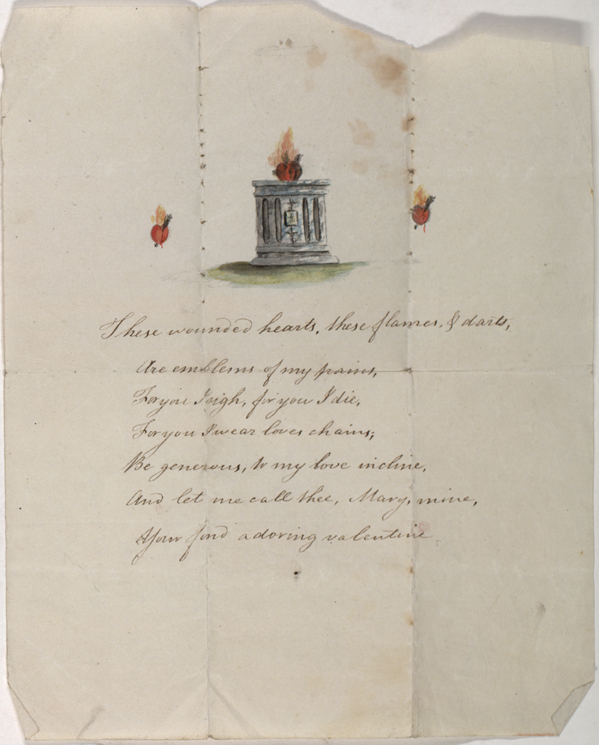
These wounded hearts, these flames and darts
The emblem of my pains,
For you I sigh, For you I die.
For you I wear loves chains;
Be generous, to my love incline,
And let me call thee, Mary mine,
Your fond adoring valentine
—
For a closer look at these heartfelt declarations, or to see what other material we hold about Valentines Day, why not search our online catalogue!

